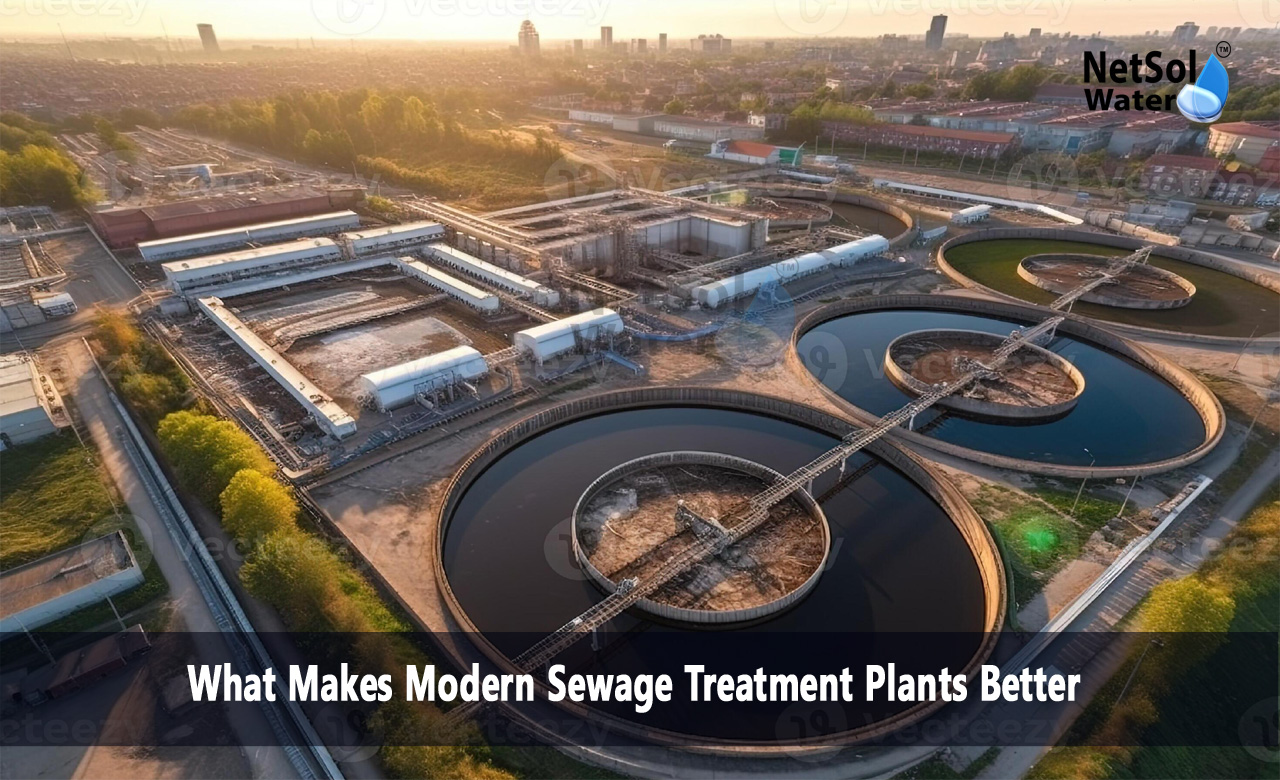What Makes Modern STP Plants Better?
Modern sewage treatment plants have changed the way wastewater is managed and ensure efficiency, sustainability, and environmental safety. As cities like Gurgaon and Noida grow, there is a greater need for appropriate wastewater treatment systems, necessitating infrastructure and technological advancements. The modern sewerage system, having all these new advanced technologies, helps preserve water resources as well as minimize the footprint left behind in the environment.
Let us understand the key features that make modern sewage treatment plants better than their predecessors and how important they are growing in urban and semi-urban areas.
Enhanced Treatment Efficiency
Modern sewage treatment plants are equipped with state-of-the-art technology to ensure that the wastewater is treated faster and effectively. Advanced processes such as membrane bioreactors (MBR) and moving bed biofilm reactors (MBBR) have revolutionized the treatment process.
In cities like Gurgaon, where population density and industrial activities are on the rise, these advanced processes prove most effective. They enable the treatment plants to treat more loads while ensuring the water quality standards are maintained at high levels, which remained a challenge in traditional systems.
Energy Efficiency Solutions
Today's new treatment plants have made great progress in their dedication to energy. Modern sewage plants include renewable power production, such as solar panels, and biogas recovery from the anaerobic digestors. For example, anaerobic digestors break down the organic waste present but also leave some methane gas in the process which can be collected and used to produce renewable power.
Various cities have adopted this technology in many of its wastewater management projects, especially focusing on sustainability. These energy-efficient solutions are reducing operational costs and carbon footprints, making them a preferred choice in urban wastewater management.
Improved Sludge Management
The major difficulties facing older systems included the management of sludge from the treatment processes. The newest generation of modern facilities has installed thermal hydrolysis and advanced digestion to handle sludge into waste products and generate fertilizers and biogas.
For example, treatment plants of Gurgaon and its periphery now are using sludge for agricultural purposes and hence help in sustainable waste management and also help local farming communities. This is the circular approach so that waste does not go for dumping but get used properly.
Advanced Monitoring and Automation
Automation and smart technology have radically changed the sewages treatment plant operations. Here, via these sensors, IoT devices, and data analytics, the operation can monitor the treatment process in real-time. These sorts of faults-like equipment failure or chemical unbalance issues get identified and settled promptly with reduced downtime, thus improving the dependability of operation.
Some citieshave made plants resistant to unexpected increases in the volume of wastewater generated especially during monsoons. The proactive measures result in steady performance during trying conditions.
Environmental Friendly Practice
Modern sewage treatment plants are concerned about environmental sustainability. Constructed wetlands and natural treatment systems work with natural ecosystems to treat the water effectively. It reduces the reliance on energy-hungry mechanical processes and creates biodiversity.
Reusability and Water Recycling
Another important advancement of modern sewage treatment is water recycling. The effluent water generated from these facilities is reused in non-potable applications such as irrigation, industrial cooling, and landscaping.
Recharged water from these modern treatment plants is providedto the green belts that have reduced fresh sources of water needed. This alone saves valuable resource usage but further contributes to attaining the sustainability of urbanization.
Scalability and Modularity
Older models of sewage treatment plants were less able to adjust to the urban growth rate in cities. With modern plants, scalability is given much importance so that the increasing capacity can be added without too much reconstruction to the plant modules.
For example, in an expanding city such as Noida, adaptability in management means that wastewater system management can absorb the increased water demands without adversely affecting water quality or environmental integrity.
Ability to Meet Tight Regulations
Wastewater regulation policies are becoming stricter in most governments of the world. Thus, modern sewage treatment plants are engineered to meet and often surpass these regulations while adhering to environmental norms. Advanced technologies allow these plants to remove not only organic pollutants but also microplastics, pharmaceuticals, and heavy metals, which were often ignored in older systems.
Public Awareness and Community Involvement
Public awareness and community involvement are the most important aspects of modern sewage treatment plants. Educational programs and guided tours are now common, helping residents understand the importance of wastewater treatment and water conservation.
Such initiatives have led to greater community participation, with residents actively supporting water recycling and sustainable practices. This shift in public mindset further enhances the impact of these advanced facilities.
Conclusion
The modern sewage treatment plants reflect a growing commitment to sustainability, efficiency, and environmental safety. Cities like Gurgaon and Noida are good examples of how these facilities can adapt to urbanization while conserving water resources.
By using the most advanced technologies, renewable energy, and eco-friendly practices, these plants not only deal with current water challenges but also present us with a greener and more sustainable tomorrow. These advanced systems, when implemented by cities, will naturally contribute benefits towards the broader community concerned with health and environmental well-being.
Modern sewage treatment plants are not just better; they are necessary for building a resilient and sustainable tomorrow.
Do you need an advice or assistance on selecting the best water and waste water treatment unit? We have solutions for all your problems!
Let us know your problem, our experts will make sure that it goes away.
For an assistance or related query,
Call on +91-965-060-8473 Or write us at enquiry@netsolwater.com



